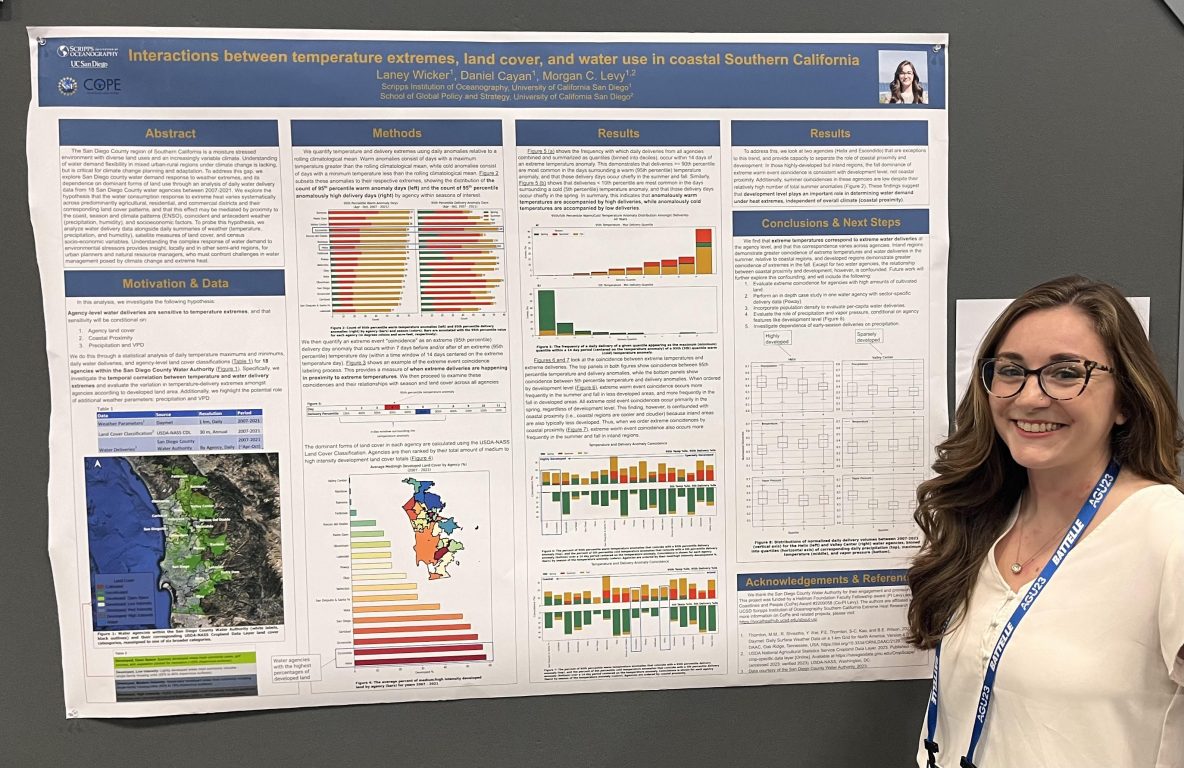Written by: Laney Wicker
In December 2023, 25,000 geoscientists from around the world flocked to San Francisco, California, to attend the annual American Geophysical Union (AGU) conference. The research presented at AGU covers a broad spectrum of topics ranging from emerging satellite technology to climate adaptation strategies. Scientists present cutting-edge research techniques and findings, while policymakers and educators address how science can be turned into action by involving communities and incorporating environmental justice techniques into research and adaptation methods. With hundreds of talks to attend and posters to read, it was like being a kid in a candy store for an early career scientist such as myself.
I was one of the many scientists presenting a research poster in a massive, buzzing poster hall this year. As a member of the Southern California Heat Hub at the Scripps Institution of Oceanography, my research focuses on the hydrologic impacts of coastal heatwaves in the highly populated, water-stressed San Diego region. My poster, titled “Interactions between temperature extremes, land cover, and water use in coastal Southern California” investigated the nuanced response of water consumption during coastal heat waves within the San Diego County Water Authority’s member agencies. This ongoing research hopes to better understand what factors lead to variations in water consumption across the region during heat waves. I presented my preliminary findings that suggest coastal proximity plays the dominant role in an agency’s water consumption behavior, while land cover plays an important yet more subtle role. Understanding this relationship provides insight to water resource managers as they confront the impacts of climate change on water availability and extreme heat. Unlike a talk, a poster presentation is an excellent way to receive feedback from others. While attendees strolled the poster hall, I explained my research, fielded questions, and received feedback from those intrigued enough to stop at my poster. Presenting at AGU, and other conferences, is a great opportunity to produce more thoughtful and impactful research by incorporating the expertise of a broader scientific community.
Aside from receiving research feedback, AGU is an excellent opportunity to learn from others by attending research talks inside and outside of your expertise, browsing the poster hall, and networking with colleagues. Given my research interests and role within the Heat Hub, I attended numerous talks dedicated to climate change-induced heatwaves and extreme weather events. These talks provided important context and considerations for my own research, and reminded me of all the questions we still need answers to. It’s encouraging and exciting to be surrounded by such a large community of researchers dedicated to solving the world’s leading problems, and I look forward to presenting more Heat Hub research at the next annual meeting!

